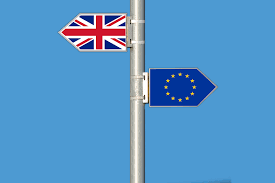A recap of the TKE’s inaugural event featuring Pascal Lamy

The TKE held its inaugural event “At the Crossroads: the UK and the EU in an uncertain global trade system” on 19 January in London. The meeting featured a keynote address by Pascal Lamy, with further contributions by Professor L. Alan Winters and Dr. Swati Dhingra.
In his remarks, Pascal Lamy offered a global perspective on negotiations that have now begun between the UK and the EU. He observed how, in a world of low tariffs and integrated supply chains, regulations have become the central focus of trade.
…in a world of low tariffs and integrated supply chains, regulations have become the central focus of trade.
This makes negotiations complex. In the past, negotiators could barter market access for one product by offering tariff concessions on another. Dealing with regulation is trickier because it deals with market failures. It is the product of an often complex cost-benefit calculus, which needs to take into account, among other things, social preferences regarding risk. The issue of risk itself has obvious emotional triggers that create political pressure.
 All of this taken together means that it is much more difficult to address diverging regulatory approaches through the traditional bartering framework with which trade negotiators are familiar. The travails of the now-suspended negotiations on the Transatlantic Trade and Investment Partnership (TTIP) are an illustration of this.
All of this taken together means that it is much more difficult to address diverging regulatory approaches through the traditional bartering framework with which trade negotiators are familiar. The travails of the now-suspended negotiations on the Transatlantic Trade and Investment Partnership (TTIP) are an illustration of this.
One of the main underpinning of the EU’s single market is the extent of regulatory convergence between states. Though this is far from complete, especially in services, it has progressed further than anywhere else in the world.
Pascal Lamy emphasised that if UK-EU negotiations amount to selectively unpicking areas of convergence, there would be economic costs, since so much of market access is directly or indirectly predicated on regulatory convergence. Transport sector liberalisation in the road freight transport sector, for example, is underpinned by, among other things, a harmonised system of health and safety regulations for transport workers. It would be difficult for EU partners to accept that the UK, or any other jurisdiction, have the same levels of access if they were allowed to follow their own approach to health and safety in a way that could undercut those of EU members.
Pascal Lamy emphasised that if UK-EU negotiations amount to selectively unpicking areas of convergence, there would be economic costs, since so much of market access is directly or indirectly predicated on regulatory convergence.
The role of regulation, and of regulatory convergence, also conditioned the extent to which the UK would be able to pursue trade deals with the rest of the world. If a partner- such as the US – had fundamentally divergent approaches to regulation, reaching a deep agreement with it would be difficult without either (i) jeopardising deep integration with the EU or (ii) requiring onerous checks on the flow of goods and services between the UK and the EU.
In their respective presentations, Alan Winters and Swati Dhingra both underscored the importance to the UK of prioritising deep integration with the EU. They cautioned against the view that a free-trade agenda with the rest of the world could be treated as a fall-back option if no significant deal with the UK were forthcoming.
They cautioned against the view that a free-trade agenda with the rest of the world could be treated as a fall-back option if no significant deal with the UK were forthcoming.
In summing up the speeches, and the observations from the floor, Gus O’Donnell highlighted the intricacies of negotiations surrounding issues such as regulation were further complicated by the overlay of emotion these questions, and UK-EU negotiations generally, provoke. The aim of the Trade Knowledge Exchange is to provide a reliable guide through the thicket of issues and trade-offs involved.